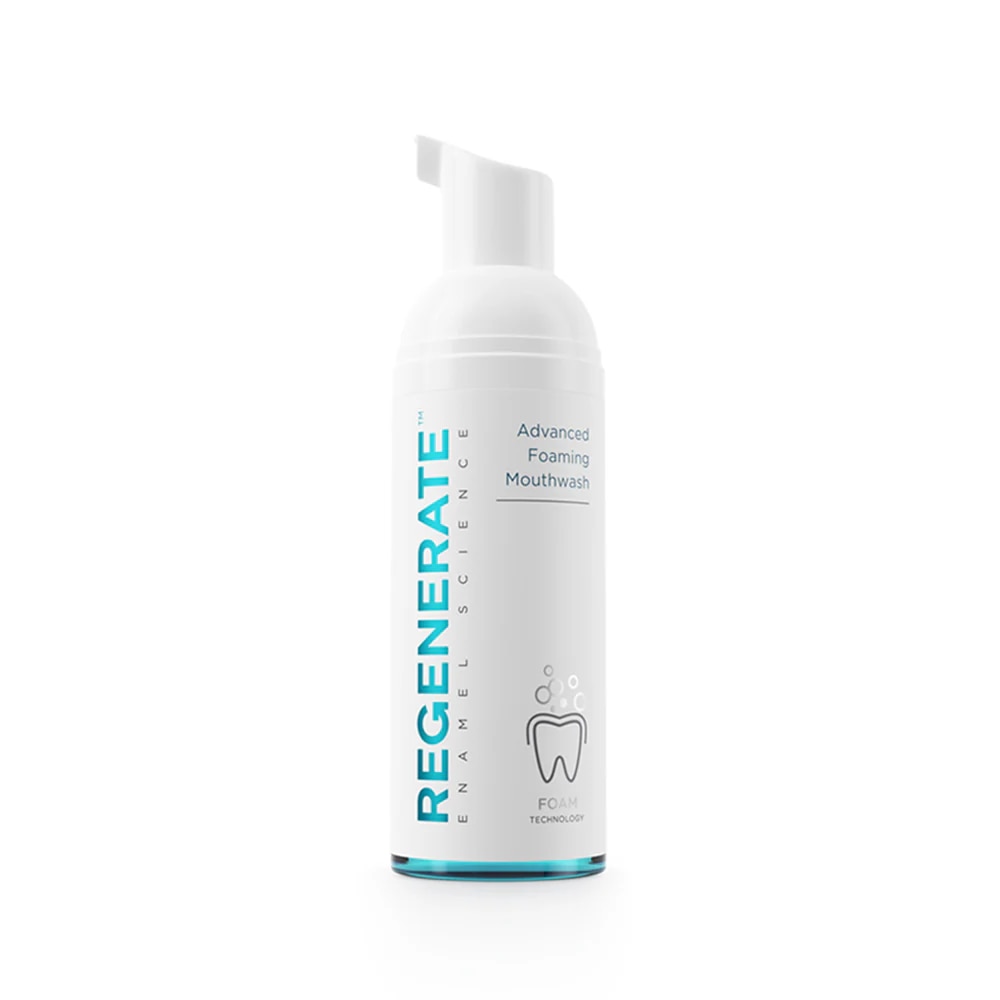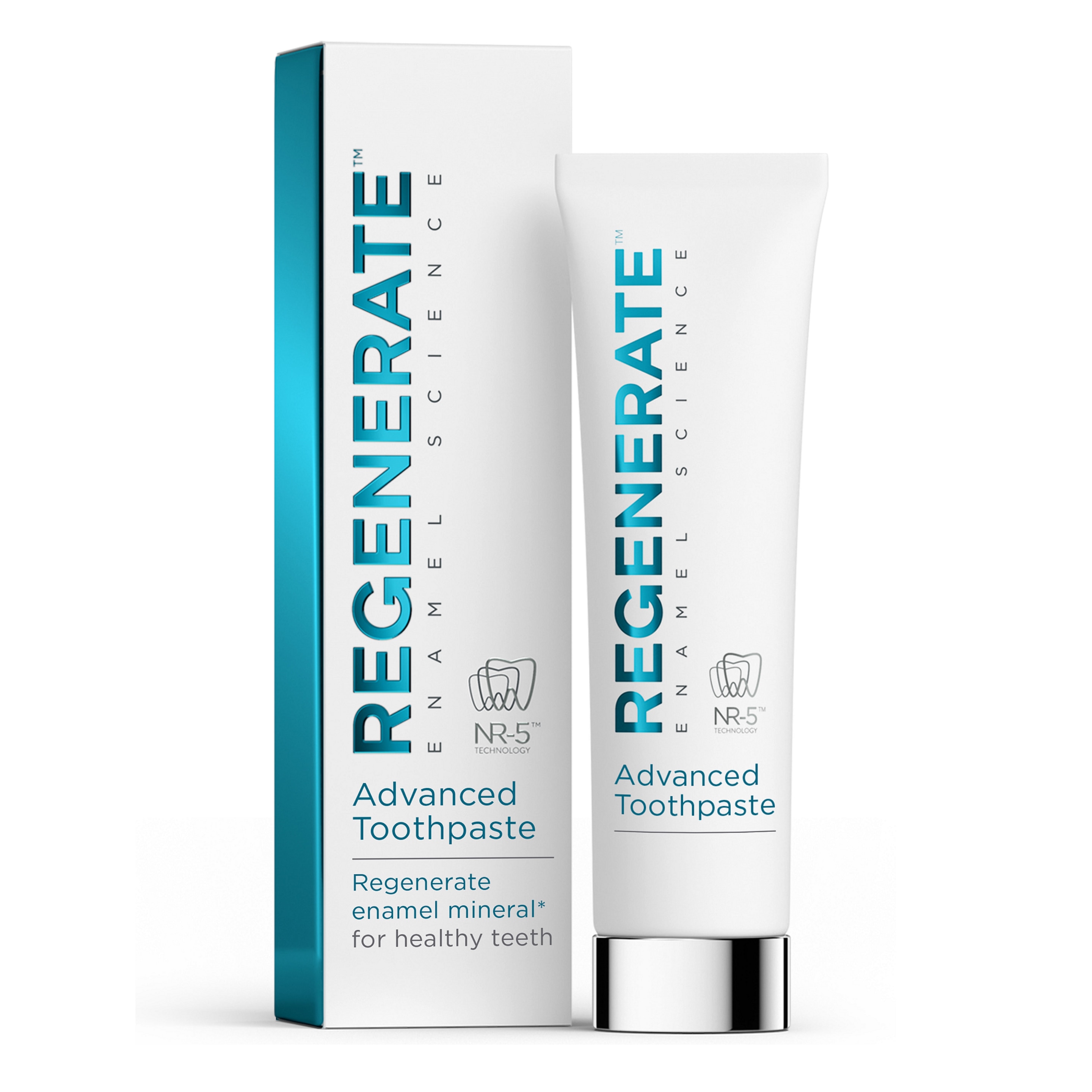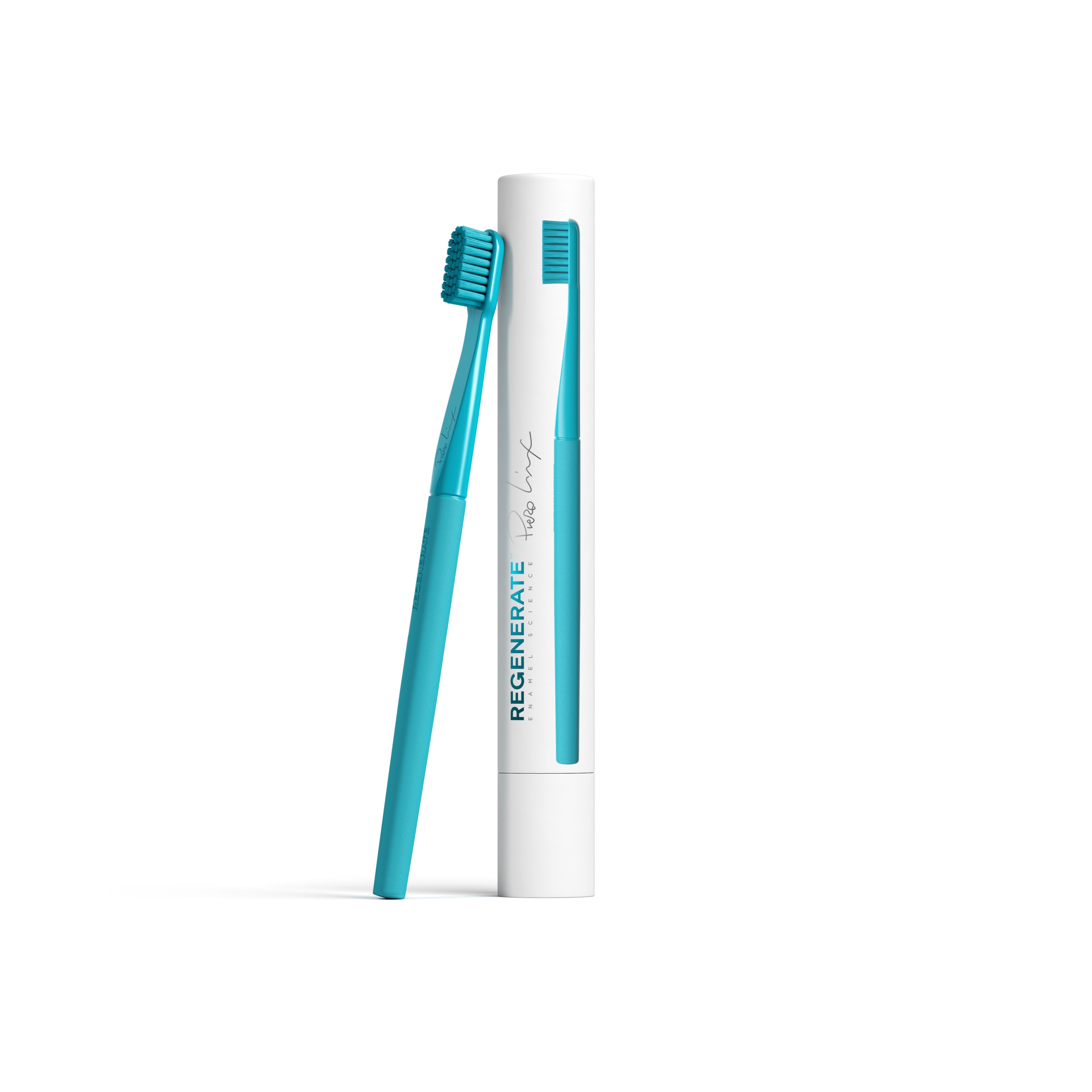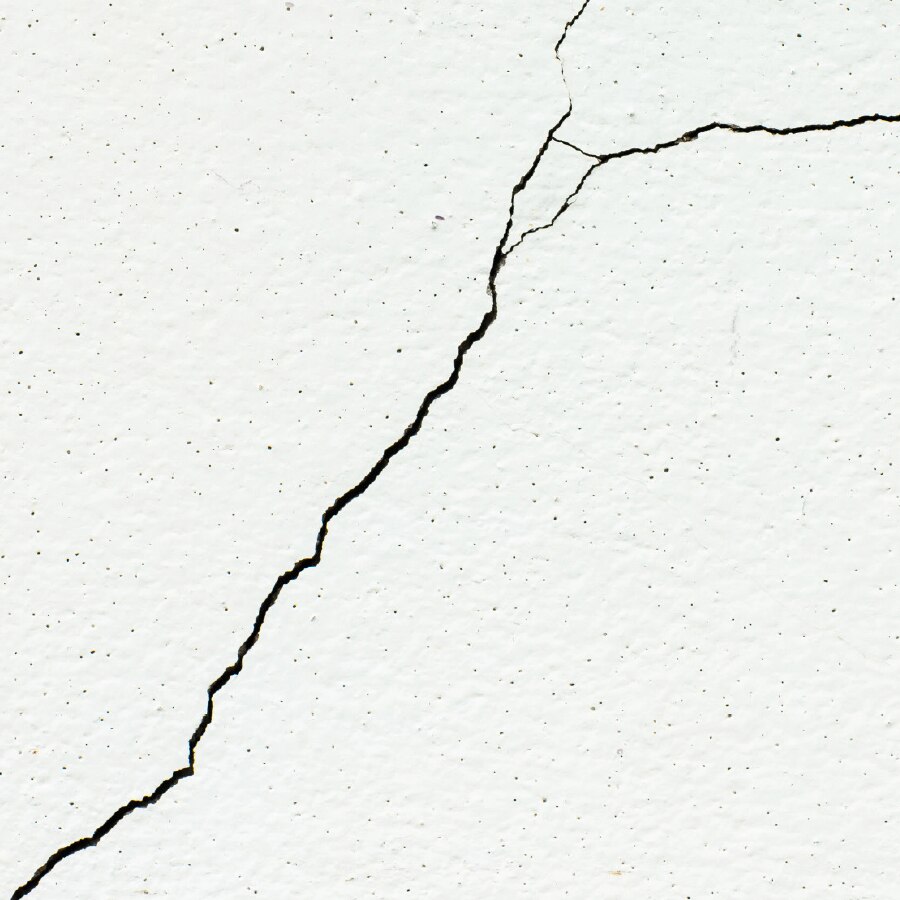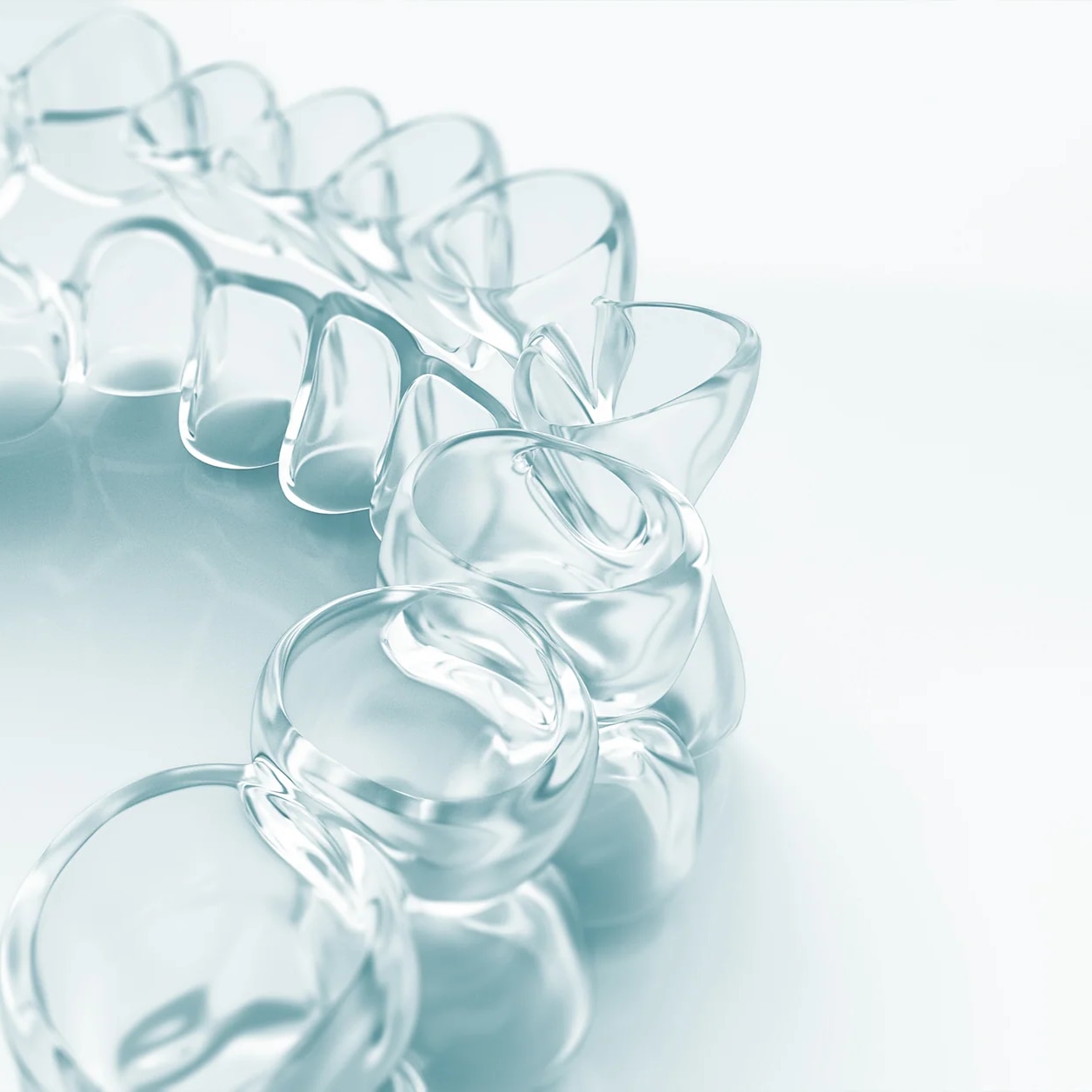Tooth enamel protects your teeth from external damage so the loss of it may lead to a lapse in this protection. Learning about teeth enamel loss and the main causes can help you take the necessary steps to prevent it and keep your smile strong and healthy.
What is teeth enamel loss?
The hard outer shell of our teeth above the gum line is called the enamel, and lost enamel occurs when this layer is compromised, exposing the dentin layer underneath. This can lead to various issues, including discolouration, tooth sensitivity and an increased chance of suffering from tooth cracks, chips and breaks¹.
Teeth without enamel that are robust and intact are also at risk of becoming infected if the soft pulp inside is exposed to bacteria. This can lead to pain, expensive dental treatments, and even tooth removal in extreme cases. That’s why it’s important to strengthen enamel and keep it healthy².
What are the causes of lost tooth enamel?
Even though tooth enamel is the hardest tissue in the body, it can still weaken². There are various reasons for loss of tooth enamel, including³:
- Consuming high levels of sugary drinks and foods.
- Enamel erosion – this can be due to acidic drinks and foods, or high levels of acid from inside the body caused by gastric acid reflux conditions, eating disorders, or chronic vomiting.
- Lack of saliva, leading to greater demineralisation.
- Abrasive activities that wear away the enamel, such as chewing on hard objects or food, and brushing too hard.
- Tooth grinding causing lost enamel through attrition (tooth-to-tooth contact).
- Poor dental hygiene, not removing the build-up of plaque, bacteria, and acid.
Tips to prevent loss of tooth enamel

If your tooth enamel is left without treatment, it may go beyond the point of self-repair. Before it gets to that stage, there are plenty of things you can do to help protect your tooth enamel from losing its mineral content, wearing down, and being attacked by damaging substances².
Here are our tips:
- Maintain good saliva levels (dentist-approved sugar-free chewing gum can help if you suffer from dry mouth).
- Limit or avoid high-sugar foods like sweets and sugary drinks like fizzy drinks and fruit juice. When you do consume sugary drinks, use a straw to limit their contact with your teeth.
- Drink water throughout the day, and rinse your mouth with water after having sugary or acidic food and drink.
- Consume more dairy products containing calcium, such as milk, cheese and plain yoghurt, plus green leafy vegetables and fish containing bones⁴.
- Wait for an hour to brush your teeth after eating or drinking anything acidic. Consuming acidic food and drink can soften your enamel, making it more prone to damage, particularly from abrasive brushing.
- If attrition means you’re developing teeth without enamel, your dentist could fit a mouth guard to protect your chewing surfaces during the night.
- Use a soft toothbrush to gently brush twice a day, and floss daily.
As well as following the tips above, choosing daily oral care products that are clinically proven to help increase your enamel mineral, like Regenerate Advanced Toothpaste, will also help to prevent tooth enamel loss. You can also boost your toothpaste’s daily benefits with monthly treatments like Regenerate Advanced Enamel Serum – when used with the Advanced Toothpaste it can result in 82% recovery of enamel hardness after 3 days*.
Now that you have information about what, why, and how teeth enamel loss occurs, you know why it’s so important to protect your teeth using our tips. While understanding the causes and signs of enamel loss is helpful, it’s important to visit the dentist regularly so that any signs of lost tooth enamel can be dealt with promptly.
*Based on an in-vitro test measuring enamel hardness after 3 days combined use of Toothpaste and Serum.
The advice in this article does not constitute medical advice; it is solely available for information purposes. We recommend that you consult your dentist If you are experiencing any dental problems.
Sources:
- slide 1
- slide 2
- slide 3


